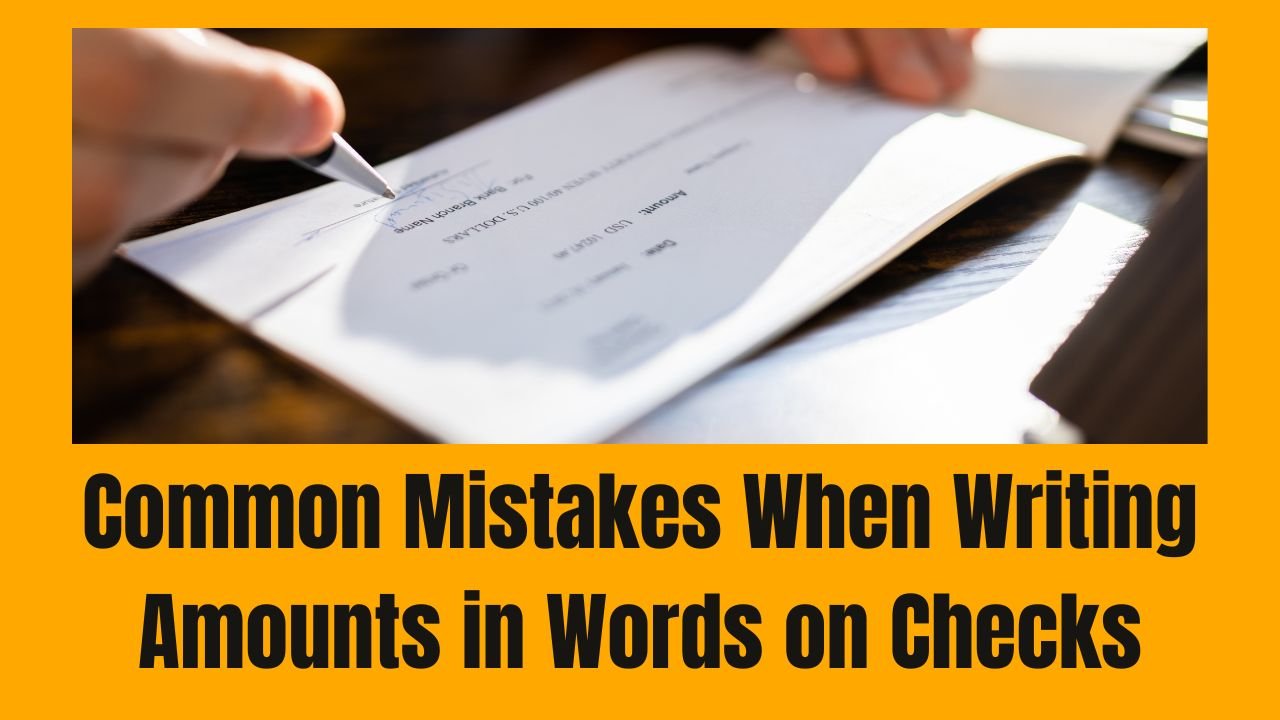
Writing a check might seem straightforward, but small mistakes when spelling out the amount in words can lead to big problems—rejected payments, bank disputes, or even fraud risks. Whether you’re paying rent, settling a bill, or gifting money, getting the written amount right is crucial. In this guide, we’ll break down the most common errors people make when writing amounts in words on checks and share practical tips to avoid them. Plus, discover how tools like an amount in words converter can make the process foolproof.
Table of Contents
Why Writing Amounts in Words Matters
When you write a check, the amount in words serves as a legal confirmation of the payment. Banks use it to verify the numeric amount, ensuring there’s no discrepancy or tampering. A single mistake in spelling or formatting can cause delays or even void the check. Let’s dive into the pitfalls to watch out for.
Common Mistakes to Avoid
1. Misspelling Number Words
One of the biggest errors is misspelling number words, like writing “fourty” instead of “forty” or “thousand” as “thounsand.” These mistakes can confuse bank tellers and lead to rejected checks. For example, if you write “One Thounsand” instead of “One Thousand,” the bank might question the validity of the check.
Tip: Double-check your spelling or use a numbers to words converter to ensure accuracy.
2. Forgetting the Word “And”
The word “and” is critical when writing amounts in words, but it’s often misplaced or omitted. For instance, writing “One Hundred Fifty” instead of “One Hundred and Fifty” is technically incorrect. Similarly, using “and” in the wrong place—like “One and Hundred Fifty”—can cause confusion.
Tip: Always place “and” before the tens or units place (e.g., “Two Hundred and Thirty-Five”). If unsure, a quick check with an amount in words converter can clarify.
3. Mixing Numbers and Words
Some people accidentally mix numbers and words, like writing “One Hundred 50” instead of “One Hundred and Fifty.” This can make the check invalid, as banks require a consistent format. Mixing formats often happens when someone’s in a rush or unsure of the correct wording.
Tip: Stick to words only for the written amount. Use a numbers to words converter to practice proper formatting.
4. Not Including Cents Correctly
Cents are tricky. Some write “One Hundred Dollars and 50/100” correctly, but others might write “One Hundred and Fifty Cents,” which is ambiguous. Another common error is omitting the fraction for cents, like “One Hundred Dollars” for $100.50.
Tip: Always include cents as a fraction over 100 (e.g., “25/100” for 25 cents). For whole dollars, write “00/100” to be clear, like “One Hundred and 00/100 Dollars.”
5. Writing Illegibly
Sloppy handwriting can make even a correct amount unreadable. If a bank teller can’t decipher whether you wrote “Fifteen” or “Fifty,” your check might be flagged or rejected. This is especially common with cursive writing or rushed checks.
Tip: Write clearly and legibly. If your handwriting is shaky, consider typing the amount in words using an online tool first to confirm accuracy.
How to Write Amounts in Words Correctly
To avoid these mistakes, follow these simple steps:
- Start with the Whole Dollar Amount: Write the dollar amount in words, using proper capitalization (e.g., “One Hundred Twenty-Three”).
- Add “and” for Cents: Use “and” to introduce the cents, written as a fraction (e.g., “and 45/100”).
- End with “Dollars”: Always include “Dollars” at the end to clarify the currency (e.g., “One Hundred Twenty-Three and 45/100 Dollars”).
- Double-Check Spelling: Verify number words like “thirty” or “ninety” to avoid typos.
- Use Tools for Accuracy: If you’re unsure, use an amount in words converter to generate the correct text instantly.
Real-Life Example
Imagine you’re writing a check for $1,234.56. The correct written amount would be: One Thousand Two Hundred Thirty-Four and 56/100 Dollars. A common mistake might be writing “One Thousand Two Hundred and Thirty Four 56 Cents,” which is incorrect and could lead to confusion at the bank.
Tools to Simplify the Process
Writing amounts in words doesn’t have to be stressful. Using a reliable amount in words converter can save time and prevent errors. These tools instantly convert numbers like $1,234.56 into “One Thousand Two Hundred Thirty-Four and 56/100 Dollars,” ensuring you get it right every time. They’re especially handy for large or complex amounts.
Wrapping Up
Writing amounts in words on checks might seem like a small detail, but it’s a critical step to ensure your payment is processed smoothly. By avoiding common mistakes like misspellings, incorrect formats, or illegible handwriting, you can save yourself time and hassle. Next time you write a check, double-check your work or use our free amount in words converter for guaranteed accuracy. Happy check-writing!
